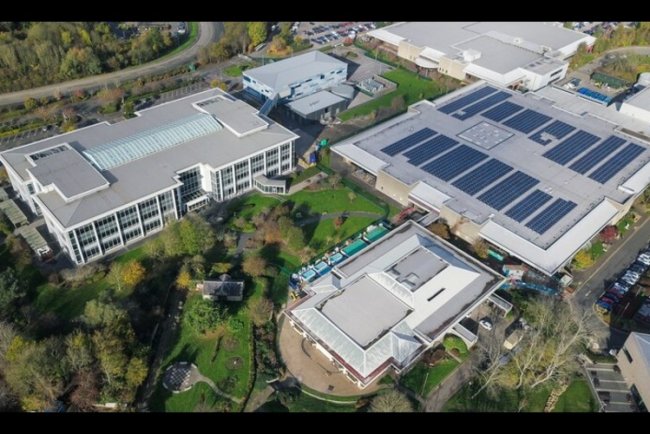Converge Raises $22M To Cut Concrete Emissions
Converge raises $22M to scale AI platform that cuts carbon emissions and waste in concrete production worldwide.

In a significant step for the construction and clean technology industries, the London-based tech business Converge has secured $22 million in investment to advance its goal of using artificial intelligence to decarbonize the concrete industry. The most recent funding round is anticipated to hasten the firm's attempts to market and broaden its AI-driven platform, which is intended to lower the carbon impact of concrete, one of the most widely used and environmentally damaging materials in the world.
For a long time, the cornerstone of modern infrastructure, concrete, has been a major obstacle in the worldwide effort to combat climate change. Cement alone contributes to about 8% of the world's carbon dioxide emissions, making it a crucial ingredient of concrete. More than 900 kg of CO2 are released for every 1,000 kg of cement produced. Concrete is still one of the most difficult materials to decarbonize despite being a fundamental component of development due to its extensive production procedures and widespread application. Converge is targeting a revolution in the way concrete is manufactured and used by presenting itself as a technology-driven disruptor.
Established in 2014, Converge uses cutting-edge artificial intelligence in conjunction with its own sensor technology to improve concrete use and manufacture. Its main platform, ConcreteDNA, is a major advancement in digital building management. The system can simulate concrete performance, monitor usage, and optimize mix designs with exceptional accuracy by combining real-time sensor data with AI-powered predictive modeling. This data-driven strategy enables construction teams to make more informed decisions, decrease waste, eliminate inefficiencies, and, most importantly, reduce carbon emissions.
The new funding will have a significant positive effect in the future, according to Converge CEO and co-founder Raphael Scheps. As the most used material in the world, concrete presents one of the biggest challenges and opportunities in the worldwide drive toward decarbonization, he said. He portrayed the firm's work as a synthesis of predictive and generative AI techniques that can effectively improve material performance. Scheps claims that the new funding will allow Converge to expedite the creation of its AI capabilities and extend their use throughout the world.
Existing investors like Climate Investment (CI), TO Ventures, and Force Over Mass Capital maintained their support throughout the fundraising, which was headed by ABN AMRO Sustainable Impact Fund (SIF), a significant supporter of sustainable innovation. A significant show of support for Converge's goal and technology was the addition of Move Energy, PI Impact, and J-Impact as new participants in the round.
Gaetano Giuffrè, the SIF Investment Manager, emphasized the strategic significance of promoting innovations in the building sector, especially those that focus on increasing efficiency and lowering emissions. He commended Converge for focusing on an industry that has historically been resistant to change, stating that the firm is promoting more intelligent optimization and cleaner production in a sector with significant environmental effects.
This significant investment demonstrates a rising understanding in the financial and industrial communities of the critical need to reduce emissions from industries that are difficult to abate, such as the construction industry. Technologies like those created by Converge are positioned to play a pivotal role in revolutionizing supply chains and construction techniques as governments, businesses, and international stakeholders increase their commitment to climate targets.
Converge's innovation provides a realistic solution to a major issue in a time when sustainability is growing more and more necessary. The business allows construction companies to construct in a smarter, quicker, and cleaner manner by utilizing real-time data and cutting-edge analytics. Not only does this advance environmental goals, but it also improves project efficiency and cost-effectiveness, two key issues in the building industry.
The additional funding will probably help Converge grow its technology internationally by supporting expansion into new markets, continued product development, and the strengthening of strategic alliances. Because the building industry is a major contributor to greenhouse gas emissions worldwide, such technology-driven approaches may be the key to balancing development with sustainability.
Ultimately, Converge's success in this field may point to a more general change in the way the construction industry views decarbonization, demonstrating that environmental responsibility and innovation can, and should, go hand in hand.
What's Your Reaction?

















